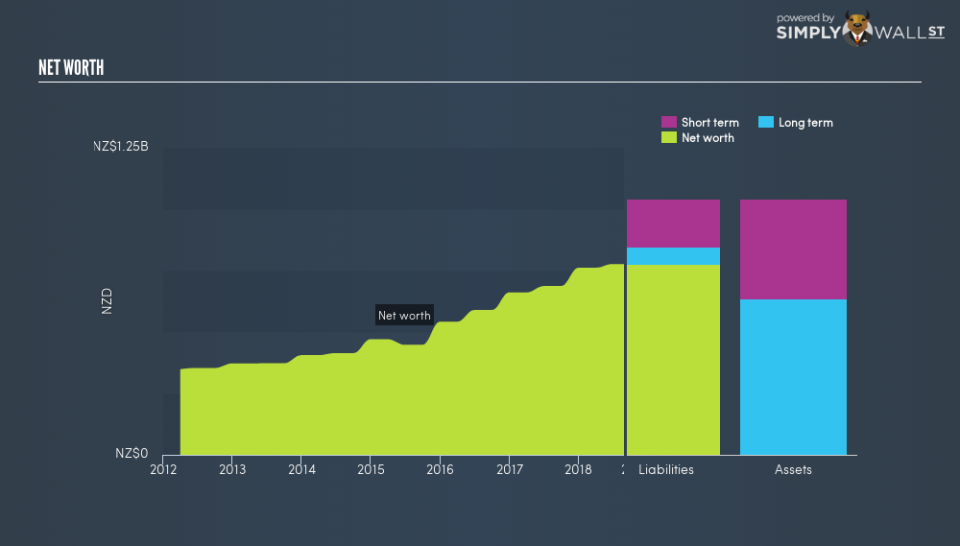How Much Money Does Fisher & Paykel Healthcare Corporation Limited (NZSE:FPH) Make?

Want to participate in a short research study? Help shape the future of investing tools and you could win a $250 gift card!
Two important questions to ask before you buy Fisher & Paykel Healthcare Corporation Limited (NZSE:FPH) is, how it makes money and how it spends its cash. After investment, what’s left over is what belongs to you, the investor. This also determines how much the stock is worth. I will take you through FPH’s cash flow health and the risk-return concept based on the stock’s cash flow yield, using the most recent financial data. This will help you think about the company from a cash perspective, which is a crucial factor to investing.
View our latest analysis for Fisher & Paykel Healthcare
What is free cash flow?
Fisher & Paykel Healthcare’s free cash flow (FCF) is the level of cash flow the business generates from its operational activities, after it reinvests in the company as capital expenditure. This type of expense is needed for Fisher & Paykel Healthcare to continue to grow, or at least, maintain its current operations.
The two ways to assess whether Fisher & Paykel Healthcare’s FCF is sufficient, is to compare the FCF yield to the market index yield, as well as determine whether the top-line operating cash flows will continue to grow.
Free Cash Flow = Operating Cash Flows – Net Capital Expenditure
Free Cash Flow Yield = Free Cash Flow / Enterprise Value
where Enterprise Value = Market Capitalisation + Net Debt
Fisher & Paykel Healthcare’s yield of 1.97% indicates its sub-standard capacity to generate cash, compared to the stock market index as a whole, accounting for the size differential. This means investors are taking on more concentrated risk on Fisher & Paykel Healthcare but are not being adequately rewarded for doing so.
What’s the cash flow outlook for Fisher & Paykel Healthcare?
Another important consideration is whether this return is likely to be maintained over the next couple of years. We can gauge this by looking at FPH’s expected operating cash flows. Over the next few years, the company is expected to grow its cash from operations at a double-digit rate of 16%, ramping up from its current levels of NZ$259m to NZ$300m in two years’ time. Furthermore, breaking down growth into a year on year basis, FPH is able to increase its growth rate each year, from -1.2% next year, to 17% in the following year. The overall picture seems encouraging, should capital expenditure levels maintain at an appropriate level.
Next Steps:
Low free cash flow yield means you are not currently well-compensated for the risk you’re taking on by holding onto Fisher & Paykel Healthcare relative to a well-diversified market index. However, the high growth in operating cash flow may change the tides in the future. Now you know to keep cash flows in mind, I suggest you continue to research Fisher & Paykel Healthcare to get a more holistic view of the company by looking at:
Valuation: What is FPH worth today? Is the stock undervalued, even when its growth outlook is factored into its intrinsic value? The intrinsic value infographic in our free research report helps visualize whether FPH is currently mispriced by the market.
Management Team: An experienced management team on the helm increases our confidence in the business – take a look at who sits on Fisher & Paykel Healthcare’s board and the CEO’s back ground.
Other High-Performing Stocks: If you believe you should cushion your portfolio with something less risky, scroll through our free list of these great stocks here.
To help readers see past the short term volatility of the financial market, we aim to bring you a long-term focused research analysis purely driven by fundamental data. Note that our analysis does not factor in the latest price-sensitive company announcements.
The author is an independent contributor and at the time of publication had no position in the stocks mentioned. For errors that warrant correction please contact the editor at editorial-team@simplywallst.com.

 Yahoo Finance
Yahoo Finance 
